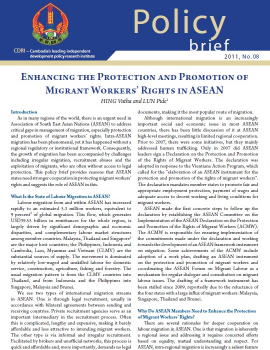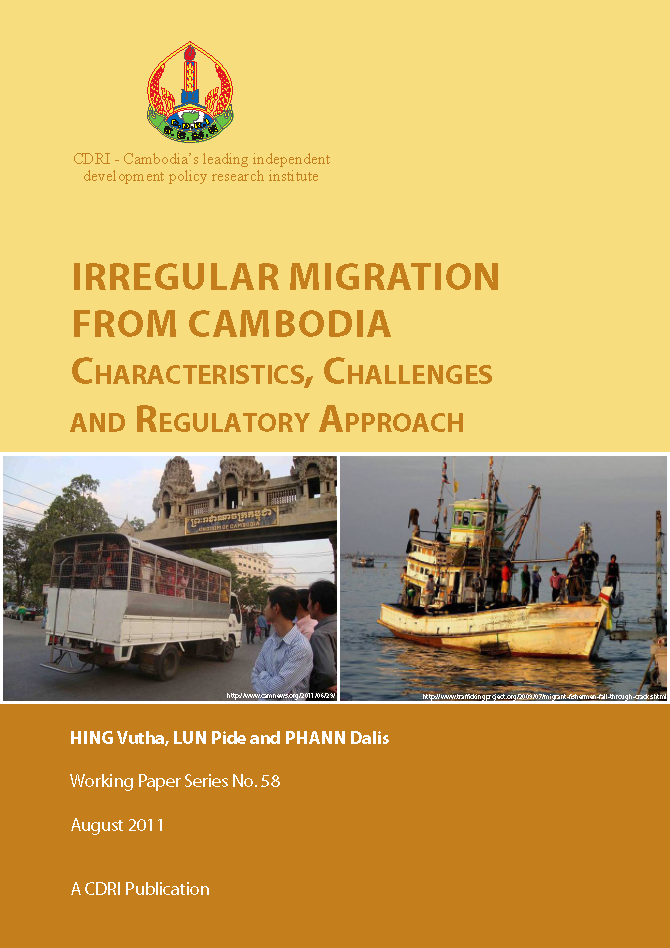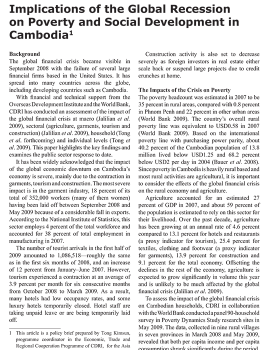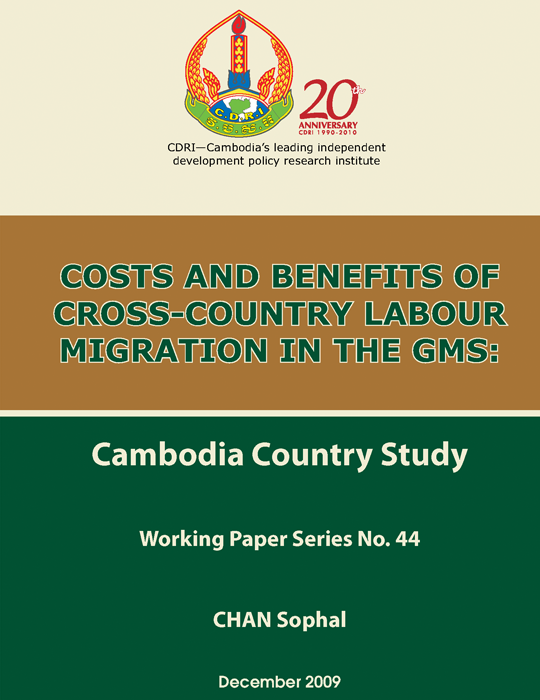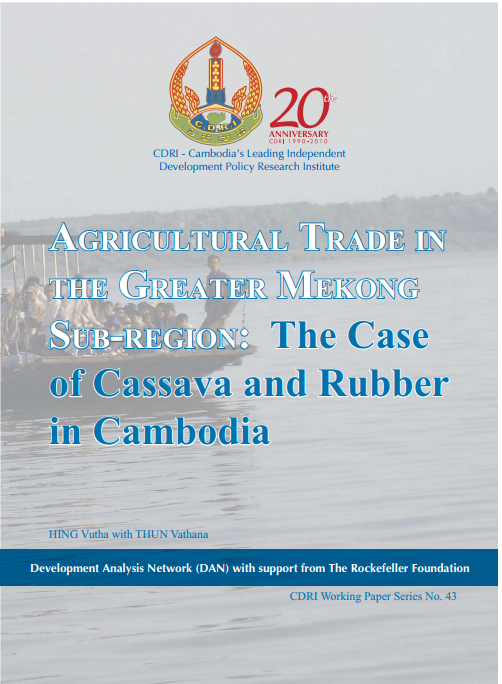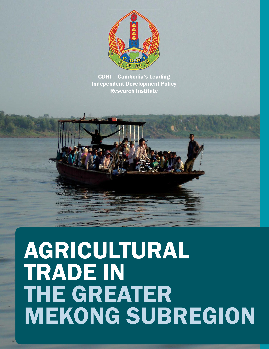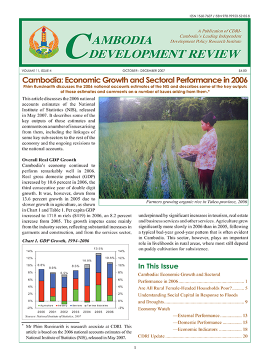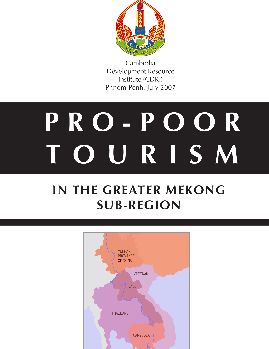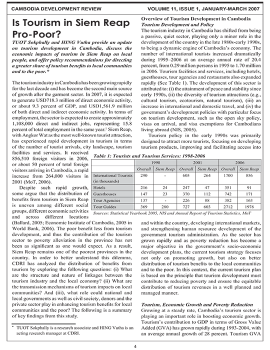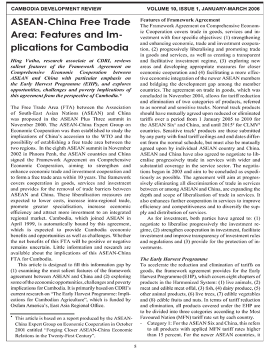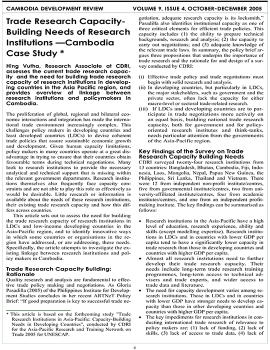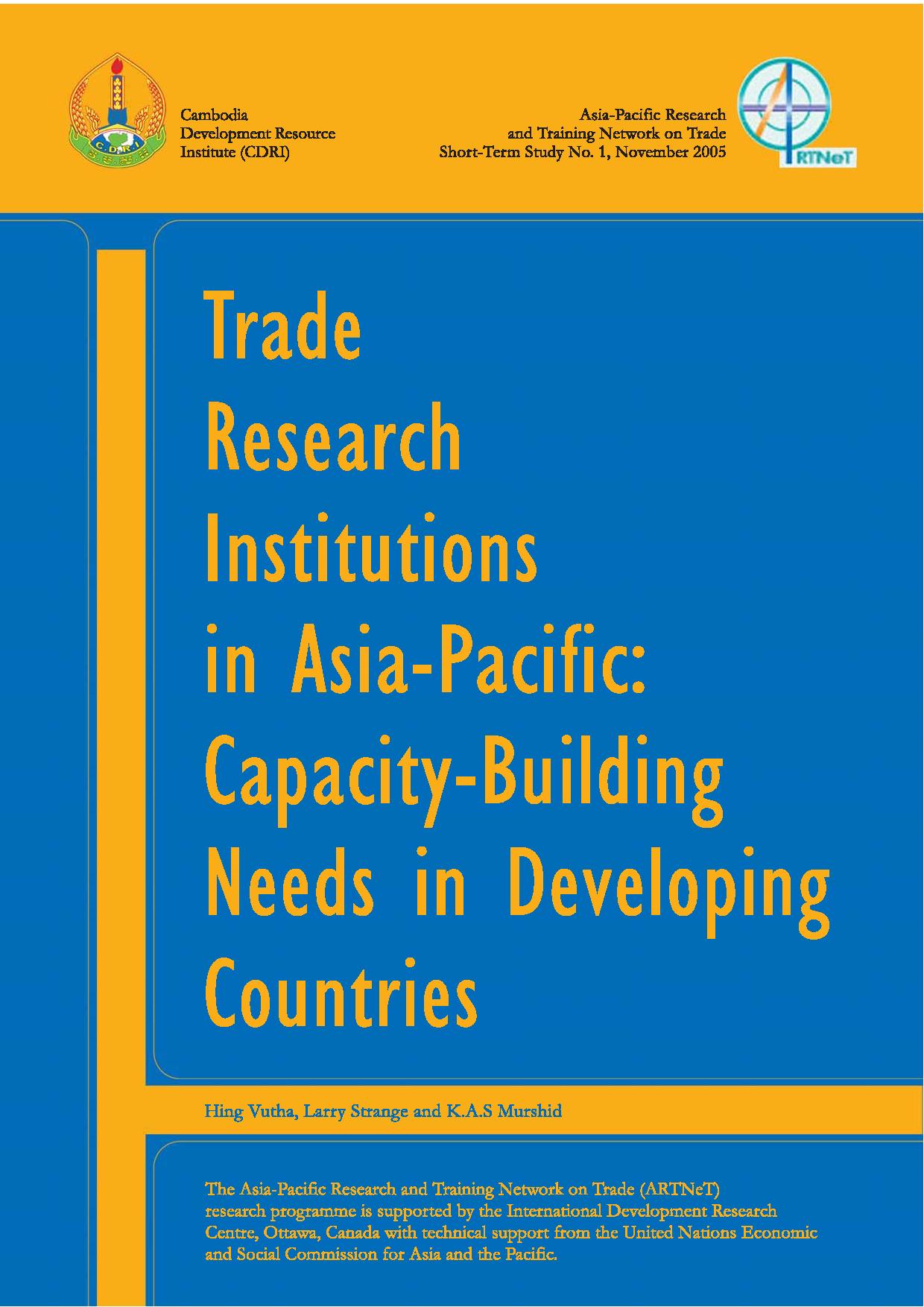Irregular Migration from Cambodia: Characteristic, Challenges and Regulary Approach
Migration via irregular channels has been the most popular option for Cambodian workers seeking jobs abroad as it is widely regarded as relatively secure, convenient and cheap. But some migrants face abuse and exploitation while others become victims of human trafficking. Irregular migration raises serious issues about the protection and management of migrant workers in both sending and receiving countries. There is international consensus that irregular migration needs to be addressed in a holistic and comprehensive manner by looking at […]
Costs and Benefits of Cross-border Labour Migration in the GMS: Cambodia Country Study
Most Cambodian migrants travel by illegal or informal routes, mainly to Thailand, as the legal option is costly and inconvenient. Government agencies face a huge challenge in managing this growing labour migration. Since the creation of productive jobs does not keep pace with the number of new entrants to the labour force, the pressure to emigrate in search of employment is likely to increase. This study, as part of a regional study by the GMS-Development Analysis Network (now GMS-Net), provides […]
Agricultural Trade in the Greater Mekong Sub-region: The Case of Cassava and Rubber in Cambodia
Cambodia’s agricultural sector accounted for 27 percent of GDP in 2007 and employed about 56 percent of the total labour force, especially the poor. Aware of the importance of agricultural trade for economic growth and poverty reduction, the government’s approach has been to enhance agricultural exports while developing the sector. This study examines how to best promote agricultural trade in the region in order to optimise benefits and minimise negative impacts. Cassava and rubber are the subject of in-depth analysis […]
Agricultural Trade in the Greater Mekong Subregion
The five country case studies help fill the gaps in the availability, quality and exchange of information on agricultural production and trade in the GMS particularly of cassava and rubber. The importance of these two crops to individual GMS countries and individual agricultural sectors may differ, but there are common reasons underlying the value of cassava and rubber to their economies and the households dependent on them. Cassava is a good substitute for rice and an affordable feed for livestock. […]
Pro-Poor Tourism in the Greater Mekong Subregion
This study of pro-poor tourism in five countries of the Greater Mekong Sub-region emphasizes how tourism has become, or continues to be, a significant driver of economic growth and development in all the participating countries—Cambodia, Laos, Thailand, Vietnam and Yunnan province of China. At the same time, the governments of the less developed of these countries, in partnership with their international development partners, the private sector and other development stakeholders, are working together to achieve more effective poverty reduction outcomes. […]
Trade Research Institutions in Asia-Pacific: Capacity-Building Needs in Developing Countries
The informal meeting of core Asia-Pacific Research and Training Network on Trade (ARTNeT) research institutions in 2004 highlighted the need for building the capacity of research institutions from least developed countries (LDCs) in the region. However, little research or information is available on what the needs of these research institutions are, their existing trade research capacity and how this varies across countries. This study sets out to address the following key issues: What are the existing trade research capacities of […]

